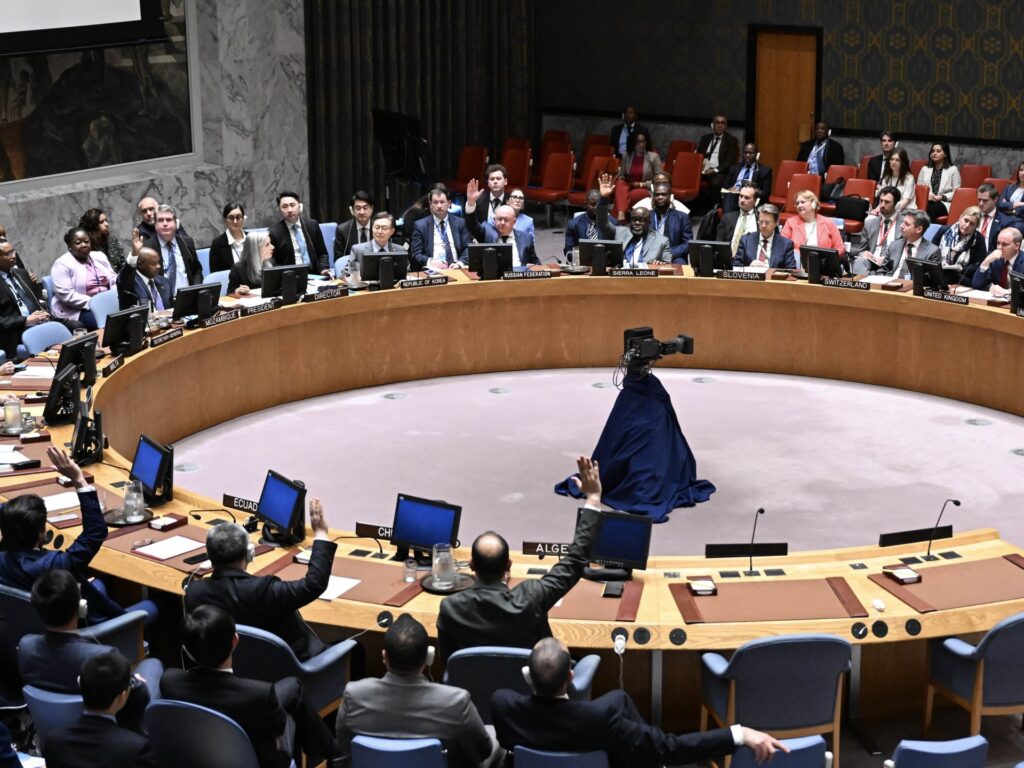10/6/2024–|Last updated: 10/6/202411:32 PM (Mecca time)
On Monday, the UN Security Council adopted an American draft resolution supporting the ceasefire plan in Gaza and an unconditional implementation of the proposed deal announced by US President Joe Biden.
The American draft resolution stipulates “a permanent ceasefire, complete withdrawal from Gaza, prisoner exchange, reconstruction, the return of displaced persons, and the rejection of any demographic change in the Strip.”
The text – which “welcomes” the truce proposal announced by the US President on May 31, and calls on Israel and Hamas “to fully implement its conditions without delay and without conditions” – received 14 votes, while Russia abstained from voting.
The US Ambassador to the United Nations, Linda Thomas-Greenfield, said in a speech before the Council before the vote, “We are waiting for Hamas to agree to the ceasefire agreement that it claims to want… as with each passing day needless suffering continues.”
The draft resolution addresses the details of the proposal, and states that “if the negotiations take more than 6 weeks in the first phase, the ceasefire will continue as long as the negotiations continue.”
Last March, the Council called for an immediate ceasefire and the unconditional release of all detainees held by the Palestinian resistance in Gaza.
For its part, the Islamic Resistance Movement (Hamas) welcomed the Security Council’s decision, saying that it welcomed what was included in the resolution regarding a permanent ceasefire in Gaza and complete withdrawal from the Gaza Strip.
Hamas said, in a statement it issued, that it renews its readiness to cooperate with mediators to enter into indirect negotiations (with Israel) on implementing the principles of the resolution.




